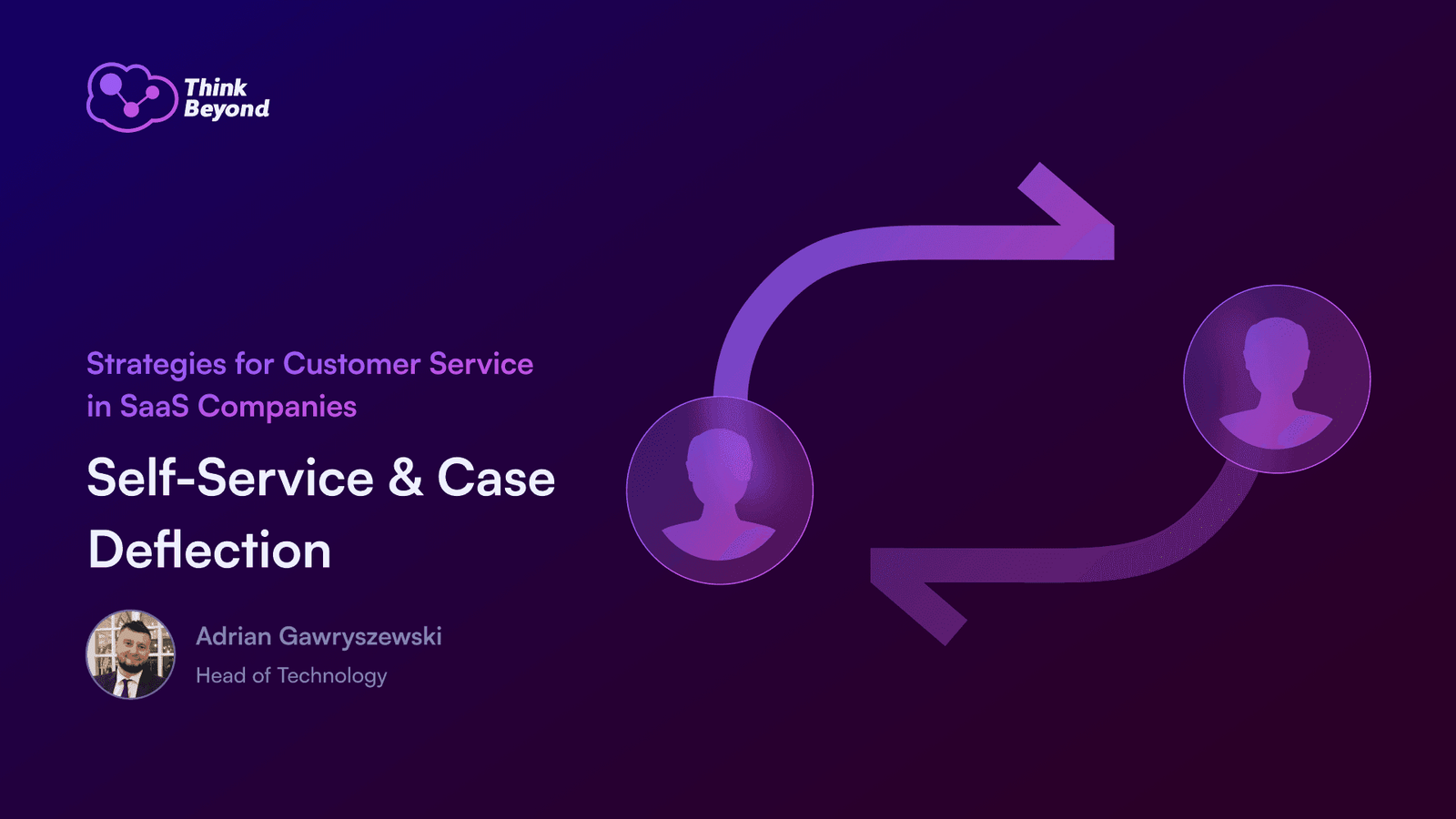
Customer service in SaaS? It’s a major player, as it determines whether the sales will succeed or fail.
Customer service strategies must be carefully crafted. Two key elements that often intertwine but serve distinct purposes are self-service and case deflection, both crucial for successful SaaS operations. To navigate this terrain successfully, it’s imperative to grasp the nuances of each and recognize their impacts on reducing support costs and enhancing customer satisfaction.
Definition and Nuances of Self-Service in SaaS
Self-service encapsulates the ability of customers to independently find and utilize information relevant to their needs. This can involve accessing knowledge bases, CRMs, community forums, or even instant messaging services. The essence of self-service lies in empowering customers to resolve issues without the necessity of submitting a support ticket or engaging with a live support agent.
For SaaS businesses, self-service extends beyond mere issue resolution. It serves as a conduit for customers to explore the full spectrum of product functionalities. By providing comprehensive and easily accessible resources, self-service becomes a tool for education, unveiling features that may have gone unnoticed. This not only fosters customer satisfaction but also lays the groundwork for potential upsells and increased revenue.
The distinction with self-service lies in its invitation for customers to explore actively. It goes beyond cost-saving and encourages engagement with content, such as question-answering features and AI-powered chatbots, to facilitate seamless user interactions.
Case Deflection and its Impact on Reducing Support Costs and Improving Customer Satisfaction
Case deflection, on the other hand, is a strategic approach to minimize the need for customers to submit support tickets by providing them with the necessary resources for issue resolution. It quantifies the rate at which customers, who initially intended to escalate an issue, successfully resolve it independently, averting the need for live customer service intervention.
In the context of SaaS, effective case deflection is intricately tied to a robust knowledge management strategy. This encompasses the identification and elimination of content gaps, with search analytics data playing a pivotal role. SaaS companies can significantly improve case deflection rates by capturing, documenting, and making information readily available to users, whether customers or support agents.
The impact of successful case deflection is two-fold.
- Firstly, it enhances agent productivity by reducing the influx of support requests for relatively simple issues. This streamlines the support process and contributes to overall customer satisfaction.
- Secondly, it leads to substantial cost savings for the SaaS company, as fewer resources are dedicated to addressing straightforward problems that customers can resolve independently.
How Service Cloud helps with case deflection?
Service Cloud is a comprehensive suite of tools designed to improve customer service efficiency and effectiveness. Here’s how it helps:
From Ground Up: Building a Solid Knowledge Base
A solid knowledge base is a key component of Service Cloud. This resource includes user manuals, troubleshooting guides, how-to articles, tutorial videos, and answers to frequently asked questions. Customers can address common inquiries before they escalate to support tickets by directing them to this extensive repository of information.
Elevate Customer Support: Full-Text Search for Precise Results
Improved search functionality ensures that users can find the information they need quickly, reducing the likelihood of submitting support cases. This feature makes the search process fast and highly accurate, delivering relevant results instantly. Customers can easily search through various items, including articles, products, documents, solutions, tasks, notes, events, and different topics.
Beyond Basic Support: Convenient Help with Suggested Articles
Another powerful feature of Service Cloud is the suggested articles’ module. When a new case is created, the search engine automatically searches for articles with common keywords found in the case subject. Even just typing part of a search term triggers suggested articles, providing immediate assistance and often resolving the issue without further intervention.
Mastering Follow-Up: Reporting and Identifying Deflected Cases
Adding special fields to identify deflected cases helps count how many issues were closed by self-service users. Regularly updating the knowledge base with new queries and resolved issues ensures the continuous improvement of the case deflection strategy.
These features reduce the burden on customer support teams and improve overall customer satisfaction by providing timely and relevant information.
Effective SaaS Customer Support Tools
Leveraging AI-powered tools for SaaS customer support
AI-driven solutions automate routine tasks and provide intelligent support, significantly enhancing the customer support software experience. For instance, AI chatbots handle common inquiries around the clock, ensuring customers receive immediate assistance.
AI also plays a crucial role in personalizing customer interactions. By analyzing past interactions and behavior patterns, it recommends relevant solutions or content tailored to individual needs. This level of personalization resolves issues faster and enhances the overall user experience.
Additionally, AI-powered analytics provide insights into customer behavior, support trends, and common issues. For example, predictive analytics can forecast potential issues and enable proactive support measures.
Moreover, AI enhances knowledge management by organizing and updating knowledge bases, which is vital for reducing customer churn. Machine learning algorithms can identify the most relevant articles and ensure that the information remains current and useful.
Customer-centric strategies over cost-saving approaches in SaaS
SaaS businesses often struggle between prioritizing customer-centric strategies and implementing cost-saving measures. However, a recent Gartner study has revealed a compelling reason to focus on the former. According to the study, live channels such as phone, chat, and email support cost over 80 times more per contact than self-service channels.
While cost-saving measures are important for the long-term sustainability of a SaaS business, customer-centric strategies can yield significant benefits that outweigh the short-term savings.
By finding innovative ways to reduce support costs, SaaS businesses can achieve a winning formula concentrating on customer satisfaction while maintaining a healthy financial outlook.

